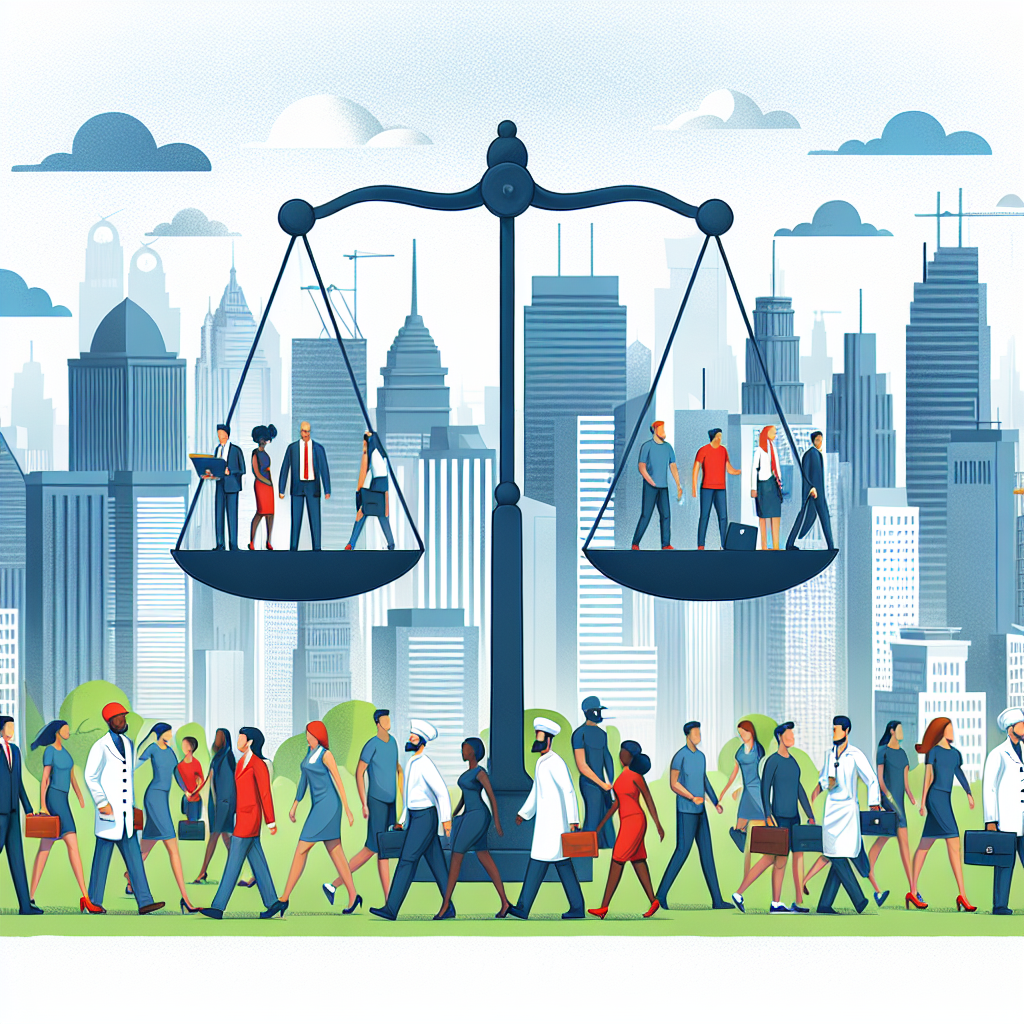The Importance of Jobs in the Economic Landscape
Jobs are a crucial component of the economic landscape, playing a significant role in driving growth, income distribution, and overall prosperity. In this blog post, we will delve into the importance of jobs and how they impact the economy.
1. Job Creation Stimulates Economic Growth
One of the primary reasons why jobs are essential in the economic landscape is that they stimulate economic growth. When businesses create new jobs, it leads to increased consumer spending, as more people have disposable income to use on goods and services. This, in turn, helps to drive demand and boost economic activity.
2. Jobs Provide Income and Support Livelihoods
Jobs provide individuals with a source of income, allowing them to support themselves and their families. This income not only helps to meet basic needs such as food, shelter, and clothing but also enables individuals to invest in education, healthcare, and other essentials. In this way, jobs play a crucial role in supporting livelihoods and improving living standards.
3. Employment Reduces Poverty and Inequality
By providing individuals with opportunities for employment, jobs can help to reduce poverty and inequality. When people have access to stable and well-paying jobs, they are less likely to live in poverty or experience economic hardship. Additionally, jobs can help to address income inequality by providing individuals with the means to improve their financial situation.
4. Jobs Drive Innovation and Productivity
Employment in various industries drives innovation and productivity, leading to advancements in technology, processes, and products. When individuals are employed in roles that challenge them and allow for creativity, they are more likely to come up with new ideas and solutions that can benefit the economy as a whole. This continuous cycle of innovation and productivity is essential for economic growth and competitiveness.
5. Employment Boosts Consumer Confidence
Having a job provides individuals with a sense of security and stability, which, in turn, boosts consumer confidence. When people are confident in their ability to earn a steady income, they are more likely to spend money on goods and services, driving demand and supporting businesses. This positive cycle of consumer confidence and spending is essential for a healthy economy.
6. Jobs Contribute to Social Stability
Employment plays a crucial role in contributing to social stability and cohesion. When individuals have access to jobs and are able to provide for themselves and their families, it can help to reduce social tensions and promote a sense of community. Additionally, jobs provide people with a sense of purpose and dignity, which can lead to improved mental health and well-being.
7. Employment Supports Government Revenue
Jobs are essential for supporting government revenue through taxes and other contributions. When businesses create jobs, they not only provide individuals with income but also contribute to government coffers through payroll taxes, corporate taxes, and other revenue streams. This revenue is essential for funding public services such as healthcare, education, and infrastructure.
8. Jobs Drive Economic Diversification
Having a diverse range of jobs in different industries helps to drive economic diversification, reducing the risk of reliance on a single sector. When there are opportunities for employment in various fields, it can help to create a more resilient and dynamic economy. Economic diversification can also lead to increased innovation, competitiveness, and growth.
9. Conclusion
In conclusion, jobs play a critical role in the economic landscape, driving growth, income distribution, and overall prosperity. From stimulating economic activity to reducing poverty and inequality, employment is essential for supporting livelihoods and improving living standards. Jobs also contribute to innovation, productivity, and social stability, while supporting government revenue and economic diversification. As such, the importance of jobs cannot be overstated in the context of a healthy and thriving economy.




